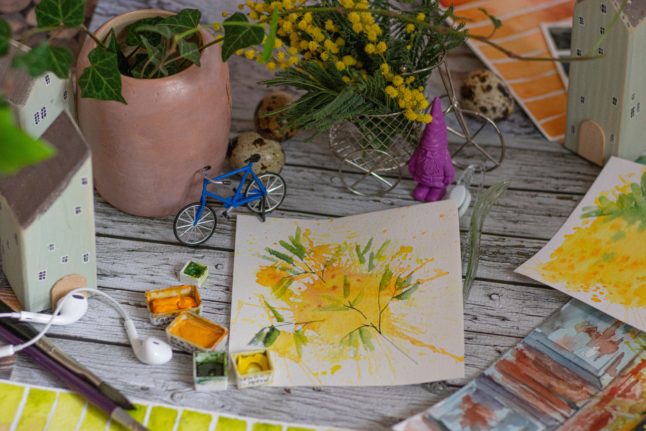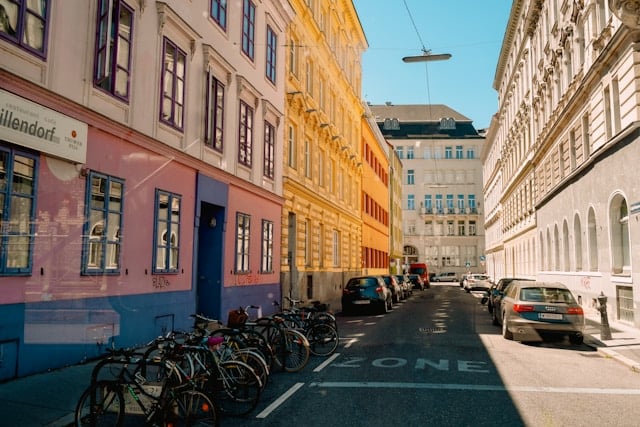Mother’s Day is a celebration honouring mothers and maternal bonds, very much connected to women’s movements all over the world. In many countries, including Austria, the date is celebrated on the second Sunday of May, when mothers can expect to receive presents and breakfast in bed.
Not all countries celebrate the date on the same day, though. In Norway, for example, Mother’s Day falls on the second Sunday of February, while Ireland and the United Kingdom celebrate Mothering Sunday on the fourth Sunday in Lent – which was March 27th this year.
READ ALSO: EXPLAINED: What you need to know about parental leave in Austria
Other countries, including Spain and Portugal, celebrate it on the first Sunday of May. Still, Austria, Germany, and Switzerland actually introduced the holiday on the same day as the first celebration in the United States – where the “modern version” of the date began in 1907.
When did Austria start celebrating Mother’s Day?
Muttertag was first introduced in Austria in 1924 after an initiative by women’s rights activist Marianne Hainisch.
Born near Vienna in 1839, she was a well-educated woman who defended women’s rights to proper education. Hainisch famously wrote the article On the Education of Women, calling for the City of Vienna to start school classes for girls. She created classrooms for girls with private funds, which was recognised by the city of Vienna in 1981.
Her efforts continued, and she campaigned for women to be allowed to attend higher education and became a leader in the suffrage movement in Austria.
Finally, she became one of the Austrian Women’s Party founders in 1912. In 1920, her son, Michael Hainisch, became the first President of Austria after the end of the first World War and the fall of the monarchy.
How do Austrians celebrate it?
The celebrations may seem familiar to many people around the world. Small children will prepare handmade presents for their moms in kindergartens or learn sweet songs to sing to them on Sunday.
Families will prepare breakfast in bed for the mother and give her chocolate and flowers.
READ ALSO: 26C: Summery weather for Austria after rainy weekend
However, flowers are almost a mandatory present on many holidays, including Mother’s Day in Austria. There is a reason why flower shops were considered “essential shops” during lockdowns and allowed to stay open.
While in some countries celebrations might take place with just a small present or chocolate, Austrians will very likely bring flowers to their mothers (as they do on Valentine’s Day, Women’s Day, and many other celebrations and birthdays).
Additionally, Austria’s love of nature and culture also shines on this date. It’s common for people to spend the Sunday days – especially since the celebration falls in mid-spring – out and about.
READ ALSO: Why Vienna is a haven for wild animals – and where you can find them
Families will take the day to go with the mothers hiking around towns or for a walk in a park. The alpine country is also famous for its cultural offers. Mother’s Day is an excellent opportunity to take moms out for the theatre or other cultural events.
Every family has its own tradition, though, as the idea is to spend the date celebrating mothers the way they’d prefer.
The commercial side of it
Like in much of the world, companies have hijacked the date, of course. Starting about one week before Mother’s Day – sometimes as early as a month, companies in Austria will start advertising products, discounts, and offers.
Since it falls on a Sunday, most of the stores and shops will be closed on the date, even though it is not a bank holiday in Austria.
READ ALSO: Why everything in Austria is closed on Sundays – and what to do instead
However, the idea is to introduce offers for presents bought beforehand, usually typical and cliche things.
Restaurants and bars, which do stay open on Sundays, will have special menus and discounts for families.
Useful vocabulary: different ways to wish a happy Mother’s Day in German
Alles Liebe zum Muttertag
Einen fröhlichen Muttertag
Alles Gute zum Muttertag







 Please whitelist us to continue reading.
Please whitelist us to continue reading.
Member comments